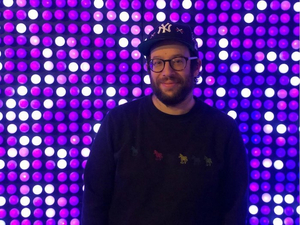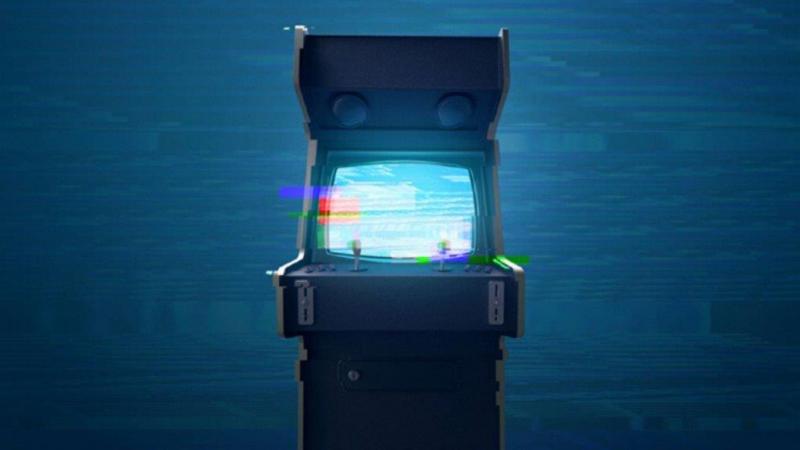Guest Blog: Director Adam Lenson On Video Game Musical STAGES

Musicals and video games have similar baggage. Both are often accused of being facile, low brow and simplistic. Both are seemingly codified or evaluated using only a handful of the most shiny and famous examples. Both are widely misunderstood.
Of course, there are many examples of both video games and musicals that are indeed facile, low-brow and simplistic. Hollow cash machines designed as nothing more than delivery systems for endorphins, or shallow nostalgia trips. But dig a little deeper and both forms are capable of so much more.
If you speak to someone who claims not to like musicals or who doesn't play video games, they often respond with the preconceptions that they're only really capable of a narrow assortment of storytelling possibilities, tone or functions. I've noticed people say things like "Musicals are only good at telling uplifting stories". Or perhaps "Video games are just mindless and repetitive violence".
But ask people who are invested in the forms and they're ready to tell you how disruptive, unpredictable and expansive both are capable of being. Games don't need to be about shooting things - they can be about mortality, loss and memory; musicals don't need to be about sequinned dance-school dropouts - they can also be about illness, sexuality, politics and family.
It may not come as a surprise that I love both musical theatre and video games. But I love not only what they have been, but what they are becoming. Both are changing as mediums and are displaying ever more interesting ways of digging into the biggest and most fascinating questions.
Both are becoming more adept as art forms and are seemingly more omnivorous in their ability to represent and include narratives from a wide range of perspectives, times and tonalities. Both are becoming fuelled by a flourishing independent scene that can take risks in a way that the West End musical or the triple-A video game studio cannot. Both have disruptive, highly creative, artist-driven scenes that are driving immense change, and an accelerating recalibration that outpaces almost all other art forms being worked in today.
Last year, I founded a production company to develop artist-driven new musical theatre. This was based on an observation that the mainstream musical wasn't really evolving. The same long-running, big-name shows that had been playing for decades were clogging up West End theatres, and many of the producers I met were almost always trying to option bestselling books and well-loved films to try and turn them into musicals.
Where, I wondered, were the opportunities for today's generation of UK writers who wanted to write shows like Chicago, Company, Oklahoma, Hamilton, Rent, West Side Story, Fun Home, Next To Normal and Dear Evan Hansen?
I wanted to create a space that allowed career musical theatre artists to create work that was initiated and driven entirely by them. Work made because of a creative urge to say something about the world we live in. Work that was based on something that was keeping them up at night.
The first part of that goal was Signal, a concert series I established to run every three months that gives artists a space to perform new material with a band. This concert series is centred around writers and gives them the chance to make work that speaks for them, rather than for what audiences expect. I ask writers to submit work that lights them on fire creatively and I'm especially interested in work that plays against traditional notions of what musicals look like, sound like or are about.

In February of last year, Christian Czornyj wrote his first song of what is now Stages. It was performed to a full room at H Club London. He then wrote three additional songs for subsequent concerts.
His idea for the piece was based on a conversation we'd shared where we discussed our appreciation for video games and the way they are, in some ways, similar to musicals. The way both mediums are excellent at allowing us space and time to process complex emotions, and the way both are going through a highly disruptive and creative moment where the possibilities for each seems limitless. We also talked about our memories of chip tune soundtracks of the games of our childhood and how interesting it might be to create an 8-bit score for a musical.
A few months later, a draft of Stages arrived, and it seemed only right that the piece would be the first production that my new company would put in front of an audience. Not only had Chris written a piece that played against almost every preconception of both musical theatre and video games, but he had also made the decision to make the piece interactive. I knew that here was a chance to show audiences how different musicals could be if we trusted artists to lead the way.
Since then, we've managed to assemble an extraordinary cast and creative team - all of whom believe that innovation and disruption are worth striving for. I am so grateful for their belief and kindness in the making of the show. The road towards a fuller acceptance for the possibilities of musical theatre won't be a short one, and it's good to have company along the way.
The piece also has come to have an unexpectedly personal significance. Last year, I was diagnosed with stage three malignant melanoma, a type of skin cancer. I am currently cancer free, but that journey is inextricably intertwined with the journey of this show. I first heard my diagnosis only a week after Chris wrote the first song of Stages - which, as it turned out, would have a narrative centred around a family processing a cancer diagnosis.
I have always said that musicals should be capable of handling even the most difficult of subjects, and having gone through that terrifying illness, I can say that music was a huge part of my healing. Musicals, like video games, are adept at helping us to process, integrate and understand life's many complexities, and I am very proud to be producing and directing a show that confronts, dissects and evaluates issues like this.
I should also say that in making a company to support new musicals and new writers, it is important to note that musicals take longer to make than plays. There are more layers of information and more pieces to align and stack. As such, they need to be put into the world and in front of audiences earlier so we can evaluate how they function and in order to recalibrate and refine them. Part of my beliefs for my company and for musical theatre is that we create a safe spaces for writers to make big, bold gestures without fear.
It is in this spirit that we put this show into the world. I have often said that the issue with being in the UK is that we get American musicals when they are fully refined and completed and never see them in their childhood or adolescent phases. Hence when we see UK musicals in these formative moments we often berate them for not being more advanced in years. We are making this show without the desire to berate, but with the goal of making a show that can grow up, mature and develop. Any help or advice you can give us to help on that journey would be most appreciated.
It's always hard to pick, but if I had to name the two most meaningful artistic experiences of my life I would say they were watching Stephen Sondheim's Sunday in the Park with George and playing Ken Levine's Bioshock Infinite. The final moments of both made me cry with a new understanding of myself and of existence.
always struggle to articulate why we are here and what this all adds up to, but playing games or sitting in the theatre, it all seems to makes some sort of sense. Bringing those two feelings together to make Stages has been one of the most rewarding experiences imaginable. I hope you enjoy the show.
Stages: A Video Game Musical is at the VAULT Festival 3-8 March
Comments
Videos

